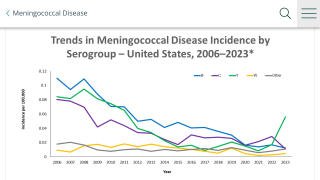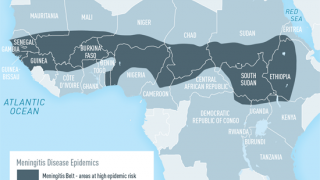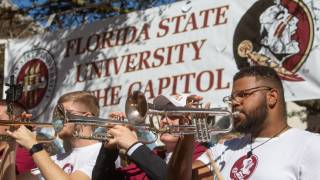Meningococcal Disease Outbreak at OSU Expands Vaccination Requirements

The Oregon State University (OSU) announced that by Feb. 15, 2018, all students under the age of 26 attending the Corvallis campus will have to show they've been vaccinated against the Meningoccus B strain.
This requirement is in addition to the existing quadrivalent meningococcal vaccine.
OSU requires incoming students under the age of 22 to have the quadrivalent meningococcal vaccine, which covers multiple strains of the disease but not the B strain.
OSU reported 3 additional cases of meningococcal disease during fall term 2017. This brings the total to 6 cases in the past year.
Five of these cases are confirmed to be type B.
In Oregon from 2013-2017, the state reported 104 cases of meningococcal disease. Over 40 percent were caused by the B strain and nearly 45 percent were caused by C.
Steve Clark, an OSU vice president, said at a news conference he urged students to use the Christmas break to get immunized against the B strain.
The meningococcal disease can cause death in 10% of those who contract it and severe lifelong impairment including deafness, blindness, or loss of extremities in up to 20% of those afflicted, reports the Centers for Disease Prevention and Control (CDC).
When this bacteria infects the membranes around the brain and spinal column, it's called meningitis. When the bacteria enter the bloodstream, that person has meningococcemia.
Transmission occurs through direct contact with droplets from an ill person coughing or sneezing, other discharges from the nose or throat, or by sharing eating and drinking utensils, smoking devices, or through intimate contact.
It can take two to ten days for signs of illness to show up after being exposed to "meningococcal bacteria," but it most often takes three or four days.
The best way to prevent meningococcal disease is by vaccination.
Different vaccines, depending on the manufacturer, require different doses. Students need to have both vaccines and all doses to be as protected as possible. There are two types of vaccines available, which are about 80 percent effective,
One, the quadrivalent meningococcal vaccine, helps protect against the A, C, W and Y strains of the bacterium. The other vaccine, which is relatively new, protects against the B strain.
Two serogroup B meningococcal vaccines are currently licensed for use in persons aged 10–25 years in the USA. The two vaccines are MenB-FHbp (Trumenba) and MenB-4C (Bexsero).
The OSU Student Health Services and the Student Health Pharmacy continue to provide students meningococcal B vaccines through on-campus clinics or within the Student Health Service clinics.
Many other healthcare providers in the community have the meningococcal B vaccine on request.
Most pharmacies offer MenB vaccines.
The CDC Vaccine Price List provides the private sector vaccine prices for general information. Meningococcal discounts can be found here.
Vaccines, like any medicine, can have side effects, says the CDC. You are encouraged to report negative side effects of vaccines to the U.S. Food and Drug Administration (FDA) and the CDC.
More information on meningococcal disease is available by calling the OSU Student Health Services Nurse Advice line at 541-737-2724 or Benton County Health Department communicable disease nurses at 541-766-6835.
Our Trust Standards: Medical Advisory Committee

























